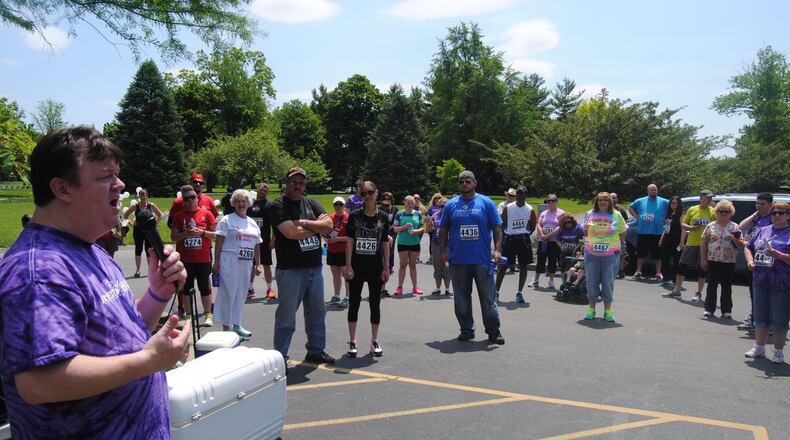So Ward stepped away from Celebrating Restoration, a decision he posted on Facebook.
MORE: Recovering addict Ron Ward talks about his drive to help others
“I cannot help others when I cannot help myself,” he said hours before leaving his Middletown home for Florida. “I’m not in a place to help others.”
Ward had been clean since July 31, 2012. His new sobriety date is June 25, 2018. After the relapse, Ward spent time at a drug rehabilitation facility in Columbus. When he returned home, Ward realized “one week wasn’t enough” and he needed more intense treatment.
MORE: Competing ‘quite an honor’ for Special Olympian from Butler County
Ward said he won’t return to Middletown and be reunited with his wife of 23 years, Nicole, and their two children, 20 and 18, until he feels physically and spiritually healed. The program lasts 60 days to six months, meaning he may not be home before Christmas.
“My focus is on my recovery and family,” the 1987 Edgewood High School graduate said.
He believes “100 percent, absolutely” in the success of his recovery.
Years ago, he started smoking marijuana, and that led to snorting crack cocaine, and methamphetamine, he said.
MORE: This Father’s Day more special to Butler County stroke victim
Ward, who calls himself “a very honest, transparent person,” wrote openly about his relapse on his Facebook account. Within hours, hundreds of people offered their encouragement and advice.
“Overwhelmed” is how Ward described the response.
Some of them wrote that Ward was the person who lifted them out of substance abuse, depression or suicidal thoughts. At Celebrating Restoration, Ward said he tried to be a “one-man” street missionary, on call 24/7. He always answered his phone and responded to Atrium Medical Center, abandoned homes, alleys — anywhere really — in the middle of the night.
On his Facebook page, he was regularly soliciting for gas money or transportation to get addicts into treatment centers. He was like an Uber driver for addicts.
“I am exhausted, tired, and weak,” he said. “I’m human. Time to take care of myself.”
MORE: Hamilton teen makes history at St. Rita School for the Deaf
During that time, Ward said, he needs to deal with what he called the “five key components” of his relapse: isolation, depression, fear, chaos and anxiety. When Ward couldn’t deal with his PTSD, he turned to a former friend, drugs. He was looking for an escape, a way out of the mental maze.
“I don’t have a desire to get high,” the 49-year-old said. “But some times, I, like so many former addicts, respond without thinking. You pick up anything to get high even if it’s wrong. You lose the ability to control choices.”
Following his relapse, he talked to his wife, pastor and others close to him.
Ward said he was “disappointed” in himself, but he hopes the relapse makes him stronger.
MORE: Consequences of teen’s split-second actions leave pain, questions
“I will survive this relapse,” he promised. “This mission is not over by any means and my story is not over. We have all a story, we all have an experience. Life is an educational journey.”
Ward, who has helped hundreds of people deal with their addictions, was asked if he felt like “a failure” since he didn’t listen to his own advice.
“I’m going to cry,” said Ward wiping away tears. “This is different experience for me. I felt like I let so many people down. It’s normal to feel sad and disappointed. We get kicked down. This is like being in a fight. I’ve been knocked down, not knocked out.”
About the Author

